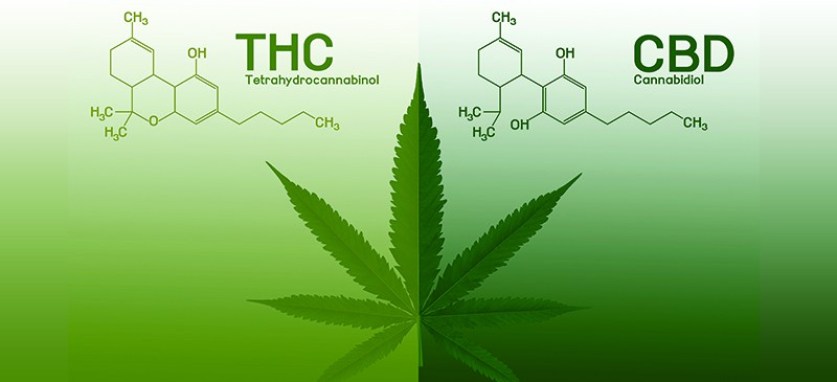THC and CBD are two of the most prominent cannabinoids in cannabis. Both compounds possess tremendous potency, with varied effects on your body; so, it’s essential to understand their function and interactions.
Though THC and CBD share a similar molecular structure, they function differently. Knowing the distinctions between these compounds will help you decide which is most suitable for your requirements.
How They Work
The cannabis plant contains hundreds of cannabinoids – chemicals that trigger reactions in your body when exposed to certain elements. Notable among them are THC and CBD.
Both compounds work by engaging the body’s endocannabinoid system, which was first discovered approximately 25 years ago and regulates various bodily functions such as mood, pain, and stress levels as well as immunity.
THC has the advantage of working in combination with these endocannabinoids to produce a wider variety of effects. Unfortunately, it may also lead to undesirable side reactions.
Contrary to THC, CBD does not bind as tightly to your receptors and is less likely to produce psychoactive effects.
To maximize the benefits of CBD, it’s essential to comprehend its properties and how to utilize it correctly. The best way to learn is by consulting a knowledgeable health professional. Our team is here to guide you through all the ins and outs of CBD, as well as provide advice on which products are most suitable for your individual requirements.
Benefits
If you’ve ever consumed cannabis, then you likely know its two chemical components – THC and CBD. While both come from the cannabis plant, they possess distinct characteristics which set them apart.
The primary distinction between THC and CBD lies in their effects on your body’s endocannabinoid system (ECS). These systems regulate multiple functions within both mind and body, such as appetite, pain perception, mood regulation, and stress levels.
THC and CBD act differently on your brain’s endocannabinoid system (ECS), with THC binding to CB1 receptors and CBD working with CB2 receptors. This subtle distinction allows them to exert distinct effects.
Both compounds can be utilized for medical purposes. It’s essential to find the ideal balance for your requirements – this may be difficult if you’re new to cannabis. Thankfully, budtenders can assist in determining which products contain the correct ratio for you.

Side Effects
THC and CBD are two cannabinoids derived from the cannabis plant, yet their chemical structures differ and they exert distinct effects on the body.
The main distinction is that CBD does not cause the intoxicating high associated with THC. Instead, research has demonstrated its ability to help alleviate anxiety, depression, seizures, and more.
Additionally, CBD helps reduce pain and inflammation that worsens conditions like cancer, multiple sclerosis, and Parkinson’s disease. Furthermore, it protects the brain while supporting a healthy stress response.
Taken orally, CBD can be taken in various forms such as oils, tinctures, capsules, and more. Some are even oral–place a dropper under your tongue! Others can be inhaled through smoking or vaping.
Legality
CBD (cannabidiol) is a non-psychoactive compound found in hemp. Studies have demonstrated its many beneficial effects without any of the intoxicating side effects that marijuana is known for.
THC, on the other hand, is the psychoactive chemical in cannabis that causes a ‘high’ sensation. While THC remains illegal federally, some states have allowed its medical use for conditions like anxiety and pain relief.
Hemp-derived CBD is legal in most countries around the world due to its minimal THC content.
However, it’s essential to be aware that THC-infused products such as THC oils and e-liquids are often illegal in certain places, and may come with the same negative consequences as marijuana itself.
Hemp-derived CBD products are made from industrial hemp that does not contain more than 0.3 percent THC, as required by the 2018 Farm Bill.
- SEO Powered Content & PR Distribution. Get Amplified Today.
- PlatoAiStream. Web3 Data Intelligence. Knowledge Amplified. Access Here.
- Minting the Future w Adryenn Ashley. Access Here.
- Buy and Sell Shares in PRE-IPO Companies with PREIPO®. Access Here.
- Source: https://flegoo.com/thc-vs-cbd-the-difference/



